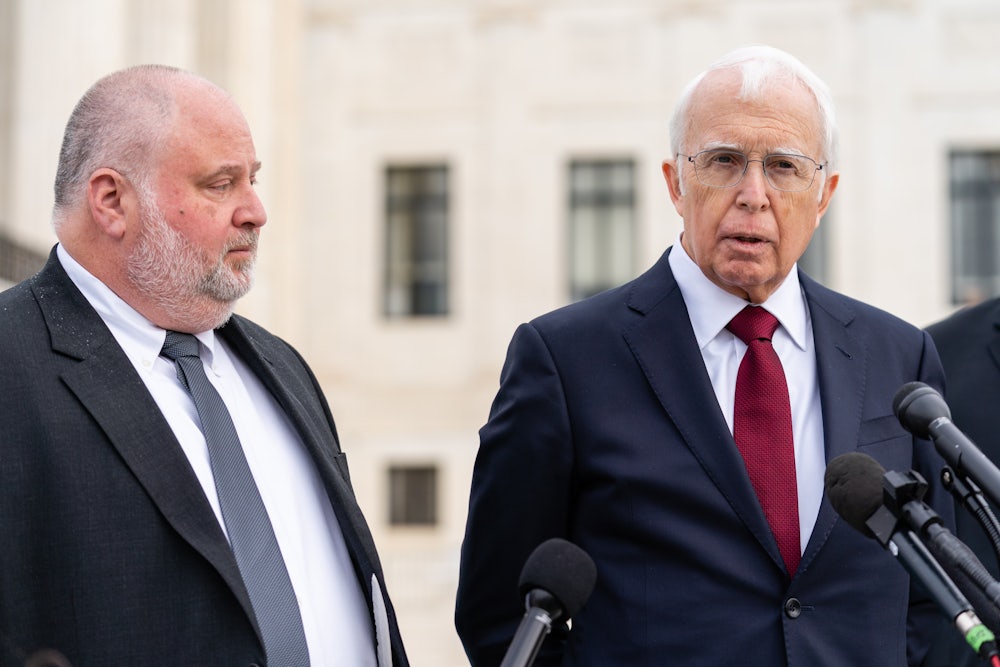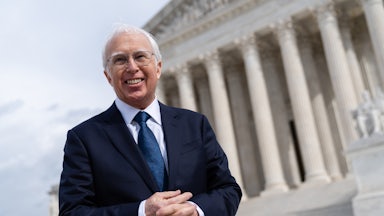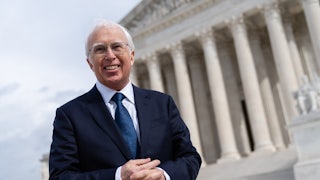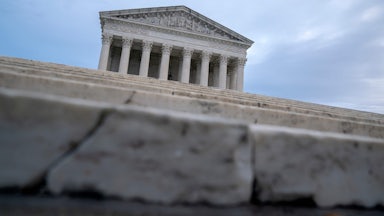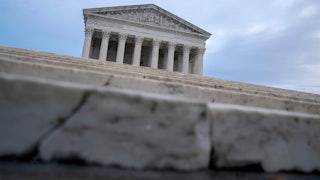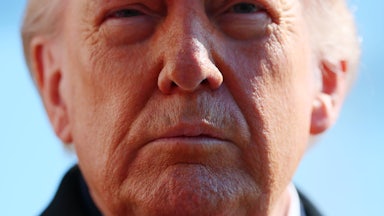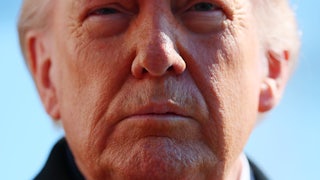The Supreme Court appeared hesitant to allow victims of international terrorism to sue Twitter, Facebook, and other tech giants under a federal anti-terrorism law, queuing up a potential victory for Silicon Valley as it comes under increasing scrutiny throughout Washington. The case, Twitter v. Taamneh, is the second of two major tech-related cases before the court this week.
At issue in Wednesday’s oral arguments was whether the family of a young man killed in an ISIS attack five years ago could, under existing law, hold the tech companies accountable for allegedly aiding and abetting the attack by hosting ISIS propaganda and recruitment materials during the 2010s. Twitter and its fellow defendants have countered that they weren’t aware of any specific danger and can’t be held liable for the misdeeds committed by one of their billions of daily users.
In 2017, a gunman named Abdulkadir Masharipov stormed a nightclub in Istanbul on New Year’s Eve and opened fire on the gathered revelers. Masharipov had previously traveled to Syria from his native Uzbekistan to meet ISIS personnel there, where he received training and weapons. Thirty-nine patrons died and another 79 people were injured in the nightclub attack. Among the dead was Nawras Alassaf, a young Jordanian man who had family members living in the United States. Those family members then filed a lawsuit against Twitter, Facebook, and Google for allegedly contributing to Alassaf’s killing.
Congress had just passed the Justice Against Sponsors of Terrorism Act, or JASTA, in 2016. The law sought to provide a stronger civil remedy for victims of international terrorism and their families. By amending the earlier federal Anti-Terrorism Act to help the families of 9/11 victims and survivors sue Saudi Arabian persons and groups that contributed to the 2001 terrorist attack by Al Qaeda, JASTA allows eligible litigants to sue anyone who “aids and abets, by knowingly providing substantial assistance, or who conspires with the person who committed such an act of international terrorism.”
But what counts as “aiding and abetting”? What counts as “substantial assistance”? Alassaf’s family read those terms broadly to argue that Twitter, Facebook, and Google subsidiary YouTube were partially responsible for his death by hosting ISIS-related content on their respective websites. The terrorist group’s meteoric rise in the 2010s can be attributed in large part, they claimed in court filings, to its ability to distribute extremist propaganda on major social media websites and video-hosting services and use those platforms to build a worldwide following. “But for ISIS’s posting using [the] defendants’ social media platforms, Abdulkadir Masharipov would not have engaged in the attack on the Reina nightclub,” Alassaf’s family argued in their briefs.
Twitter and its codefendants took a more narrow view of JASTA’s language. It is generally indisputable that ISIS grew in size and scope in its early stages with the help of social media. But the tech companies denied any specific advance knowledge of the attack in Istanbul, which they argued meant they couldn’t have “knowingly provided” any assistance as the law required. And while they were generally aware that users shared ISIS-related materials on their websites, the companies argued that they opposed the spread of such messages and had taken steps to remove them—steps that Alassaf’s family described in court filings as insufficient and not aggressive enough.
A federal district court judge in California sided with Twitter and its allies, ruling that the companies didn’t have sufficient awareness and knowledge of the terrorist plot to be liable under JASTA. But a three-judge panel in the Ninth Circuit Court of Appeals reversed that decision and allowed the lawsuit to continue. It drew upon the 1983 case Halberstam v. Welch, which was decided in the D.C. Circuit, to conclude that the plaintiffs only had to show that ISIS generally benefited from the tech companies’ platforms. The panel pointed to years of warnings by governments and private groups about the spread of ISIS materials to show the companies had sufficient knowledge that future terrorist attacks were possible, even if they didn’t know about specific ones.
Multiple justices asked questions that signaled potential concern about overbreadth. Justice Brett Kavanaugh noted that Osama bin Laden’s first interview with a Western news outlet took place with a CNN reporter in 1997. “Could, under your theory, CNN have been sued for aiding and abetting the September 11th attacks?” he asked Eric Schnapper, a University of Washington law professor who represented the plaintiffs. Schnapper suggested that the interview alone wouldn’t meet all the conditions of JASTA’s text and added, without elaborating, that the First Amendment might protect it as well.
Justice Neil Gorsuch, who participated by phone because of illness, honed in on the requirement in the law that defendants must “knowingly provide substantial assistance” to face litigation under the law in question, as well as another portion that he thought limited its scope to interact with a specific person. “I’m just struggling with how your complaint lines up with those three requirements in the statute,” he told Schnapper.
Even Justice Clarence Thomas, who has positioned himself as a critic of sorts for tech companies in recent years, appeared to have misgivings about what the plaintiffs were seeking. “If we’re not pinpointing cause and effect or proximate cause for specific things, then you’re focused on infrastructure or just the availability of these platforms, then it would seem that every terrorist act that uses this platform would also mean that Twitter is an aider and abetter in those instances,” he told Schnapper.
Lawyers arguing on behalf of the tech companies and the federal government—the latter of which sided with the former in a friend-of-the-court brief—also faced sharp questions from some members of the court. Justices Elena Kagan and Amy Coney Barrett, for example, questioned them at length about whether their narrower reading of JASTA would exclude businesses like banks and financial brokers from JASTA’s scope.
“It seems to be true that various kinds of social media platforms also provide very important services to terrorists,” Kagan asked Edwin Kneedler, who argued on behalf of the Justice Department. “And if you know that you’re providing a very important service to terrorists, why aren’t you providing substantial assistance and just doing it knowingly?” Justice Samuel Alito extended Kagan’s hypothetical even further to ask whether telecom companies could be held liable if terrorists plan attacks over the phone. In both instances, Kneedler said it would depend on the act’s proximity to the crime and the universality of the service in question.
Beyond the muddled ideological lines, one major question for the justices will be how to resolve a parallel case that was argued the day before. In Gonzalez v. Google, the court considered a similar fact pattern—a young person killed in an ISIS attack in 2015, a lawsuit by family members against a tech company that had hosted ISIS content—but in a different legal context. That case centered on Section 230, which generally immunizes internet companies from legal liability for most third-party content on their websites.
Both cases were expected to be major opportunities for the high court to reshape how Silicon Valley faces lawsuits for damaging content that it hosts and distributes. In Gonzalez, however, some of the justices appeared hesitant to rewrite Section 230 altogether because of the broader implications it could have for the digital economy. Similar fears about unforeseen consequences could also lead to a narrower ruling in the Taamneh case. How exactly that plays out—and who will benefit the most from it—won’t be clear until the court hands down its decisions sometime before the end of June.
